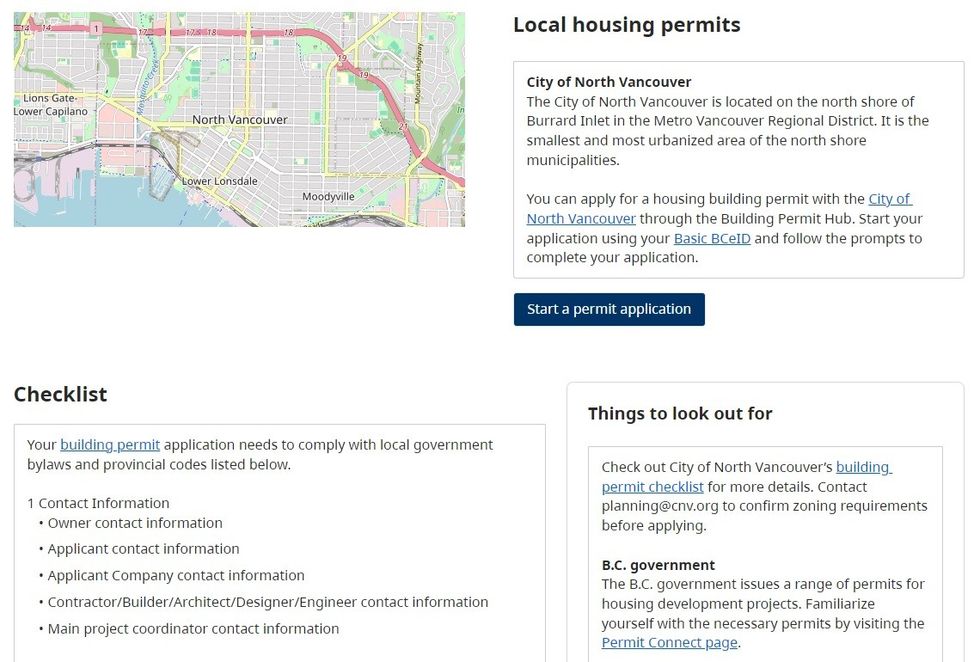On Monday, the Province unveiled the new Building Permit Hub, a tool that digitizes local building permit processes while also standardizing those processes across municipalities.
The Hub will also automatically review building permit applications — the permit required before construction on a project can begin — to confirm they are complete and also automatically check for compliance with key parts of the BC Building Code.
Applicants will submit their applications to the Building Permit Hub, after which the applications will then be sent to the corresponding local government for review.
"One of the things that I hear from homebuilders, that I hear from homeowners, is their biggest challenge is just getting the permits to do the work — to build the homes we need, to the build a secondary suite, to build a laneway house, to build a new home in British Columbia," said Premier David Eby at the press conference, which took place at a BCIT facility in Burnaby. "That challenge is one that prevents the homes that we desperately need from getting built."
Eby then alluded to some in the province who say the government should just get out of the way and let the market solve the housing crisis, saying that this does not work, before introducing the Building Permit Hub, which he said would also make BC a "leader in digital permit innovation."
"Ultimately, it's going to save money, speed up construction, and — most importantly — help people get into homes faster," said Eby.
To start off, a group of 12 local governments and two First Nations will pilot the first version of the Building Permit Hub, for low-density housing of up to four units. The Phase One group consists of:
- City of Burnaby
- City of Campbell River
- City of Kamloops
- City of Langley
- City of Maple Ridge
- City of Nanaimo
- City of North Vancouver
- City of Surrey
- City of Victoria
- Cowichan Valley Regional District
- District of Saanich
- Town of Qualicum Beach
- Musqueam Indian Band
- Tsleil-Waututh Nation
The Building Permit Hub is now online, although the Province noted in a press release that most of the aforementioned local governments are still in the process of updating the tool for their local requirements, with the remaining expected to come online this summer.
At the moment, the tool is only available to applicants in the City of North Vancouver. The application page for North Vancouver provides a detailed checklist of what a building permit application requires, as well as other "things to look out for."

The Province will then continue to upgrade the functionality of the tool over the next year.
By this fall, the Province says the Hub will become available to additional communities and digital permit applications will also become available for more building types, such as accessory dwelling units, secondary suites, and residential buildings with up to eight units. The Province will also test integration with existing systems local governments may have.
By Spring 2025, the Province says digital permits will become available for all housing types and the automated compliance check will be extended to also include the more complex aspects of the BC Building Code.
The Province says the Building Permit Hub was developed in consultation with local governments and industry experts, and that it will collect user feedback towards improving the tool in the future.
"Building applications will be more consistent and in line with local requirements, so that it's easier and faster for local governments and First Nations to review, speeding up the delivery of homes and cutting costs for resubmissions and applications," said Minister of Housing Ravi Kahlon, who also spoke at the press conference.
"This is a starting point," Kahlon added. "Our goal will be to continue to expand this. We will expand by digitizing the Building Code in a greater way, providing more tools for local governments, so that one day, homebuilders will be able to submit their applications, know upfront what the rules are, and — perhaps, even in the very-near future — get live information about where their applications are in the system."





















